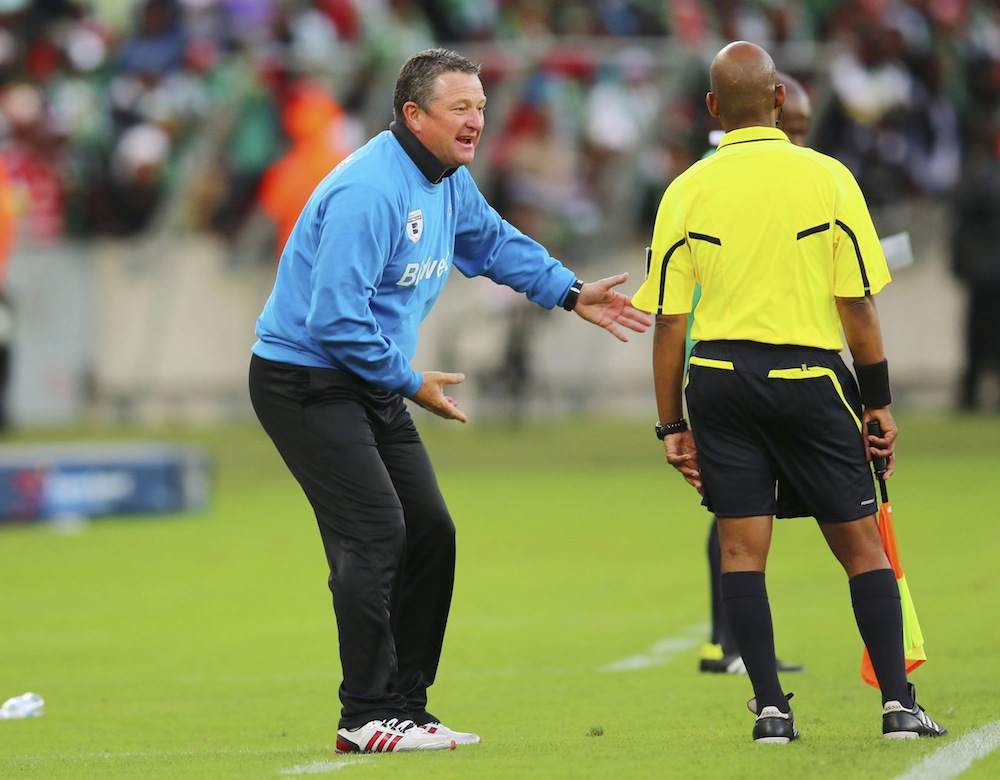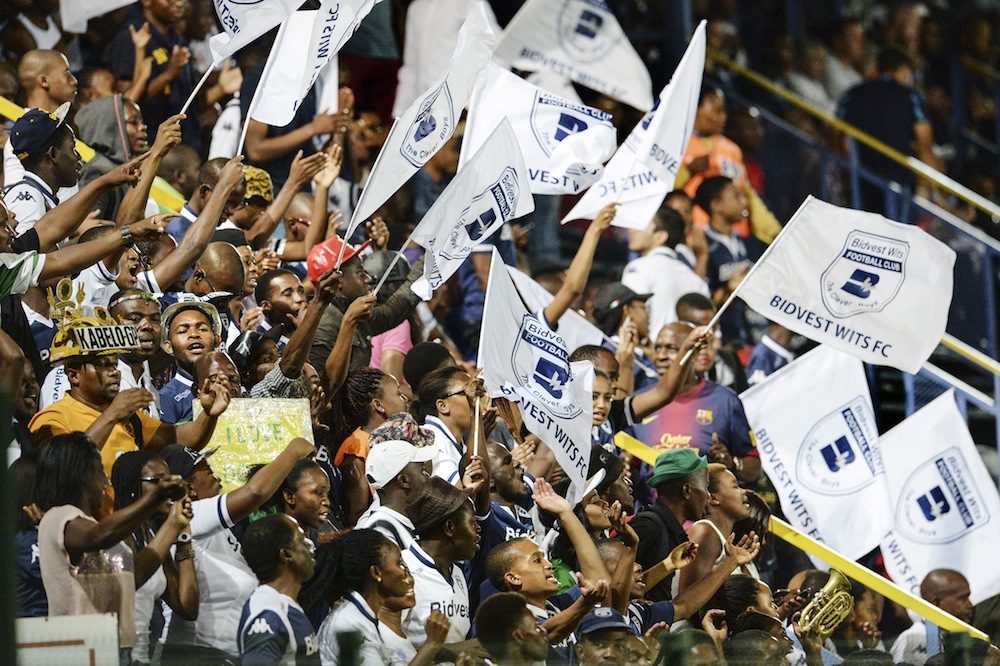'I had to find ways to compensate for my lack of masculinity,' says the writer (Graphic: John McCann/M&G)
Bidvest Wits have stumbled on a marketing strategy so canny, so audacious, so jaw-droppingly brilliant, that it’s impossible to write about it without grinning. It doesn’t involve social media, new-generation smartphones or nubile, scantily clad young women.
Indeed, it features nothing more revolutionary than the humble meat pie, a staple of football terraces in years past. Throw in a free beer during “Power Hour” and you have – ahem – the perfect recipe.
It’s this recipe that makes Wits’ home games events to be part of, with a band, a crowd of mainly Wits students from residences close by and an on-field announcer who cradles his microphone as though he’s holding a wine glass. It gives the right impression: he’s doing nothing more subtle than asking you to join the party.
It’s not, of course, quite so simple. Wits’ current second spot on the log (seven points adrift of log-leaders Mamelodi Sundowns at the time of writing) is the culmination of three or four seasons of hard work and assiduous planning. Four years ago benefactor Brian Joffe recruited José Ferreira and coach Gavin Hunt in a double deal. Ferreira was able to slip away from SuperSport United almost immediately but Hunt needed to honour his contract and followed a year later.
In the meantime, Ferreira, ensconced in his new position as chief executive, showed incumbent coach Roger De Sa the door. “We were good friends and he still doesn’t talk to me,” shrugs Ferreira, a man who can smoke a full packet of cigarettes during a Wits game. “We brought in Clive [Barker] in the interim and Clive took us to fourth in the league that season. Gavin came on board and under him we’ve finished third and third. People still think of us as a small club. Now it’s time to start winning trophies.”

Bidvest Wits have a passionate coach in Gavin Hunt. (Anesh Debiky/Gallo)
So much for the managerial back-end. The second facet of Wits’ steady success relates to their academy. They have academy teams at under-13, -15, -17 and -19 level as well as an academy first team, called Bidboys, meaning approximately 125 players all told. This should not be confused with the Wits University Football Club, which has approximately 1 500 amateur players. The Bidvest Academy and the university club are related but not joined at the hip. They help each other but essentially plough different furrows.
The Bidvest Academy is an intimate feature of Bidvest Wits, not just an exercise in good-looking social responsibility, but a wellspring of players for the senior side. Key here is a player like Phumlani Ntshangase, the green-booted wonder who came up from KwaZulu-Natal to join the Academy in 2011. He made his first team debut in 2014 and, wearing the number 41 jersey, currently plays as either a defensive midfielder on the right-hand side or a holding midfielder in a more central role.
Nicknamed “Gattuso”, after the former AC Milan and Rangers terrier Gennaro Gattuso, Ntshangase has already played for the South African under-23 side, which has qualified for this year’s Rio Olympics.
As the punters were tucking into their pies at Milpark last Friday night, with Wits playing against the University of Pretoria, national coach Shakes Mashaba and his assistant eased into the VIPs enclosure. Ntshangase wasn’t the only player they were there to see but he was certainly one of a handful they were keeping an eye on.
Aside from a steady stream of talent from their academy structures, Ferreira was always good at monitoring those who were coming to the end of contracts elsewhere. “I work with free agents; free agents are my business,” he says with something approaching glee.
The King of the Free has managed to induce many a name to walk to Wits on the free-agent road, including Moeneeb Josephs, Jeremy Keene, Daine Klate and Elias Pelembe. He estimates that 95% of his squad have either bounced into the senior ranks from the academy or arrived as free transfers.

Bidvest Wits have an enthusiastic bunch of supporters. (Lefty Shivambu/Gallo)
Wits isn’t a difficult sell. Players like the atmosphere at the club, responding to its homeliness. They also sense vaulting ambition. The wide Milpark turf remains one of the smoothest pitches in the country and, with the chain-smoking Ferreira and the peerlessly grumpy Hunt in the saddle, the club is only going to get more assertive.
Part of this growing assertion concerns calling out the Premier Soccer League (PSL) on perceived double standards. Wits weren’t happy with the PSL recently when they had to play four matches in 10 days, which saw them lose twice – once 1-0 to title rivals Kaizer Chiefs – draw once and only win once.
This said, the club isn’t going to dwell on the perversions of fixturing. Ferreira says that no club that has ever won anything anywhere else in the world has done so solely with young players or only with experienced players. Wits, he believes, have a nicely balanced combination of both. With everything in place – and a healthy supply of meat pies for home games – they now need to start converting promise into silverware. If they don’t, you rather feel that Joffe’s patience will run dry.
As far as the slightly controversial decision not to take Africa seriously, Wits believes that these are opportunities for others.
“We just don’t have the stomach for Africa right now,” says Ferreira. “It’s not a fluke that a club like Orlando Pirates have been successful in Africa – they are streetwise and savvy. Nothing will surprise them in Africa – that’s why they do so well there.”
There is a final question in need of answering: “Why should we care?” First, leagues are self-evidently better in this time of the super-club for the Wits’ and the Leicester City’s of this world. Second, they appear to be in the game for the long haul. Some can bend the rules by speeding on the hard shoulder while the rest play by the rules and stay in their lane. For that, we should all be Wits supporters.